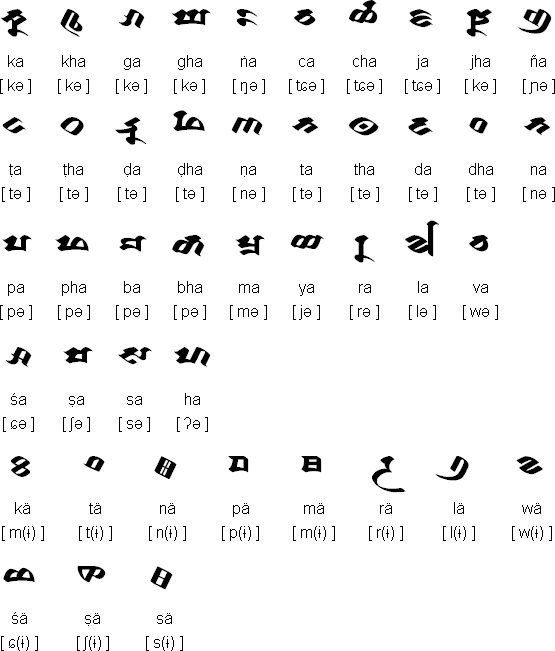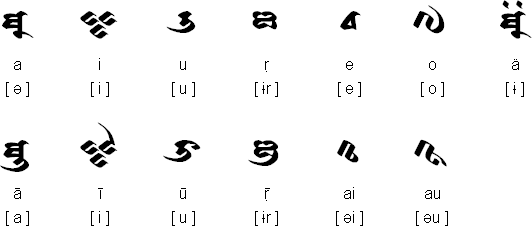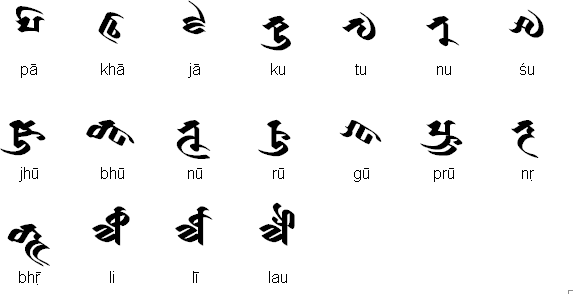Origin
The existence of the Tocharian language and alphabet only came to light in the early 20th century, when fragments of manuscripts in a then unknown alphabet were discovered in Xinjiang in north-western China.Once the manuscripts were deciphered, they proved, much to the amazement of linguists, to be in an hitherto unknown branch of the Indo-European group of languages, which they called 'Tocharian'. The alphabet they were written in is derived from the Brahmi alphabet.
Notable features
- Tocharian is a syllabic alphabet in which each consonant has an inherent vowel /a/. Other vowels are indicated with independent vowel letters or vowel diacritics.
Used to write:
Tocharian, an extinct Indo-European language which was spoken between the 6th and 8th centuries AD, and probably earlier, in what is now north-western China.Tocharian alphabet
Consonants

Vowels

Vowel indication

Fragment of a Tocharian manuscript

Links
Tocharian alphabethttp://titus.fkidg1.uni-frankfurt.de/didact/idg/toch/tochbr.htm
Everything you always wanted to know about Tocharian
http://www.oxuscom.com/eyawtkat.htm
Images of Tocharian Manuscripts
http://titus.uni-frankfurt.de/texte/tocharic









.jpg)
.jpg)

.jpg)





0 comments:
Post a Comment
Note: Only a member of this blog may post a comment.